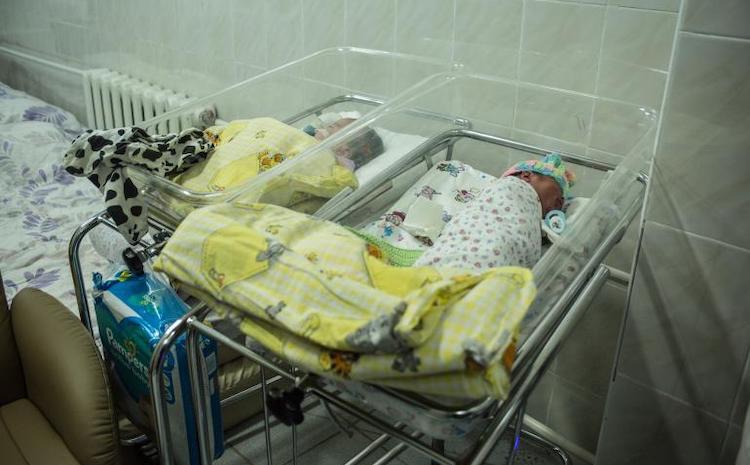By Jaya Ramachandran
GENEVA | NEW YORK (IDN) — Three UN agencies have called for an immediate ceasefire in the Ukraine-Russia conflict, enabling unhindered access so that people in need can avail of humanitarian assistance. “A peaceful resolution to end the war in Ukraine is possible,” says a joint statement issued by UNICEF Executive Director, Catherine Russell, her counterpart at UNFPA, Dr Natalia Kanem, and WHO Director General Dr Tedros Adhanom Ghebreyesus.
Calling for “an immediate cessation of all attacks on health care in Ukraine”, the joint statement on March 13 said: “These horrific attacks are killing and causing serious injuries to patients and health workers, destroying vital health infrastructure and forcing thousands to forgo accessing health services despite catastrophic needs.”
Without naming Russia, the statement declared, “to attack the most vulnerable—babies, children, pregnant women, and those already suffering from illness and disease, and health workers risking their own lives to save lives—is an act of unconscionable cruelty”.
The WHO’s Surveillance System for Attacks on Health Care (SSA) has been documenting attacks on health care in Ukraine, since the start of the war. These add up to 31 assaults. According to these reports, in 24 incidents health care facilities were damaged or destroyed, while in five cases ambulances were damaged or destroyed. These attacks have led to at least 12 deaths and 34 injuries, and affected access to and availability of essential health services. WHO is verifying further reports, as attacks continue to be reported despite the calls for protection of health care.
WHO is particularly concerned because attacks on health care and health workers directly impact people’s ability to access essential health services —especially women, children and other vulnerable groups. “We have already seen that the health care needs of pregnant women, new mothers, younger children and older people inside Ukraine are rising, while access to services is being severely limited by the violence,” says the joint statement.
For example, more than 4,300 births have occurred since Russia launched war with Ukraine, and 80,000 Ukrainian women are expected to give birth in next three months. Oxygen and medical supplies, including for the management of pregnancy complications, are running dangerously low.
“The health care system in Ukraine is clearly under significant strain, and its collapse would be a catastrophe. Every effort must be made to prevent this from happening.”
The joint statement continues: “International humanitarian and human rights law must be upheld, and the protection of civilians must be our top priority.
“Humanitarian partners and health care workers must be able to safely maintain and strengthen essential health service delivery, including immunization against COVID-19 and polio, and the supply of life-saving medicines for civilians across Ukraine as well as to refugees crossing into neighbouring countries. Health services should be systematically available at border crossings, including rapid care and referral processes for children and pregnant women.
“It is critical that humanitarian actors have safe and unimpeded access to reach ALL civilians in need wherever they may be. UNICEF, UNFPA and WHO are working with partners to scale up life-saving services and support to meet urgent health needs. We must be able to safely deliver emergency medical supplies—including those required for obstetric and neonatal care—to health centers, temporary facilities and underground shelters.
“Health care and services should be protected from all acts of violence and obstruction. Amidst the ongoing COVID-19 pandemic, which has already put health systems and health care workers under enormous strain, such attacks have the potential to be even more devastating for the civilian population. For the sake of health workers, and for all people in Ukraine who need access to the lifesaving services they provide, attacks on all health care and other civilian infrastructure must stop.” [IDN-InDepthNews – 13 March 2022]
Photo: Two newborn babies being cared for at a makeshift maternity clinic in Ukraine. Credit: UNICEF/2022/Ratushniak


